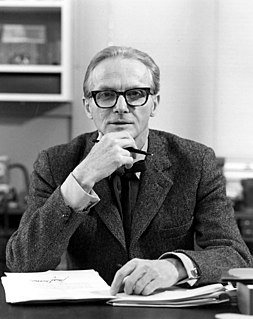A Quote by Frances Tiafoe
It really shaped me as a person going to DeMatha. Anyone that plays athletics or does music or does whatever, it teaches them to work to the best of their abilities.
Related Quotes
Marriage is a really scary thing. I'm excited about it. I know it's not a mistake, it's the absolute right thing to do. I'm really happy about it. I really, really love my fiancee. We're good friends and I think it's going to work. But that's just the point - it's going to take work. It does make me feel vulnerable to be like, wow, I'm committed to this person for the rest of my life.
I think screenwriter Steve Kloves does such a difficult job. And he does a bloody brilliant job, too. Transferring these Harry Potter books into films and making them coherent is one thing. But making them entertaining, as well, is quite another... He does a tremendous job, and he gets a lot of stick. And it's really unfair sometimes, and I challenge anyone else to do the job he does.
Is love the desire—no, the need—to be with that person, whatever the cost? Does it cause the rue of rage when you see that person with another? Does it make you ache to hold her, to whisper things that sound foreign and strange to your tongue? Does it make you wish for things you know can never be? I haven't the answers, Riley. In all that I've learned over the years, no one has ever mentioned a force such as this. But whatever it is, I feel it for you. We would have been good together.
I really don't like that modern notion of 'I don't need anyone.' I see a lot of young women feeling they have to be that way, they have to be hard, in a way. And what does that bring them? They're just going to be lonesome. They're going to be, at best, lonesome and capable, at worst, lonesome and hard. And is that what we want? No.
Friend, you cannot legislate the poor into freedom by legislating the wealthy out of freedom. And what one person receives without working for, another person must work for without receiving. The government can't give to anybody anything that the government does not first take from somebody. And when half of the people get the idea they don't have to work because the other half's going to take care of them, and when the other half get the idea it does no good to work because somebody's going to get what I work for. That, dear friend, is about the end of any nation.
I don't 'handle' people. It's so much easier to manipulate actors than to really have an earnest discussion with them. It's very easy to say whatever's going to appease them and then turn around and do whatever you want to do. It's difficult to be forthright with people, because the job does not lend itself to that.






































